In honor of Juneteenth, this is an account of the Destruction of the Forks of the Road Slave Market in Natchez, Mississippi by the US Colored Troops organized in Mississippi in 1863. This letter appeared in the Milwaukee Daily Sentinel:
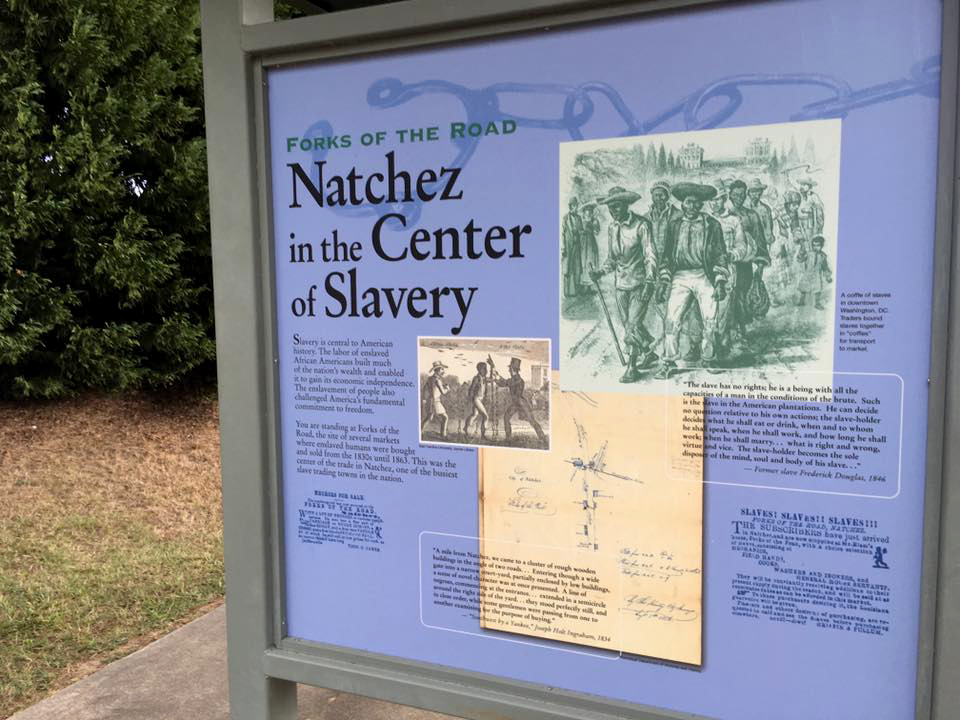 February 17, 1864
February 17, 1864
Letter from Natchez
Correspondent of the Sentinel,
Natchez, Miss., Jan. 25, 1864.
Dear Sentinel: — Still farther down the mighty Father of Waters, and from a different branch of the service than formerly, do I now write you.
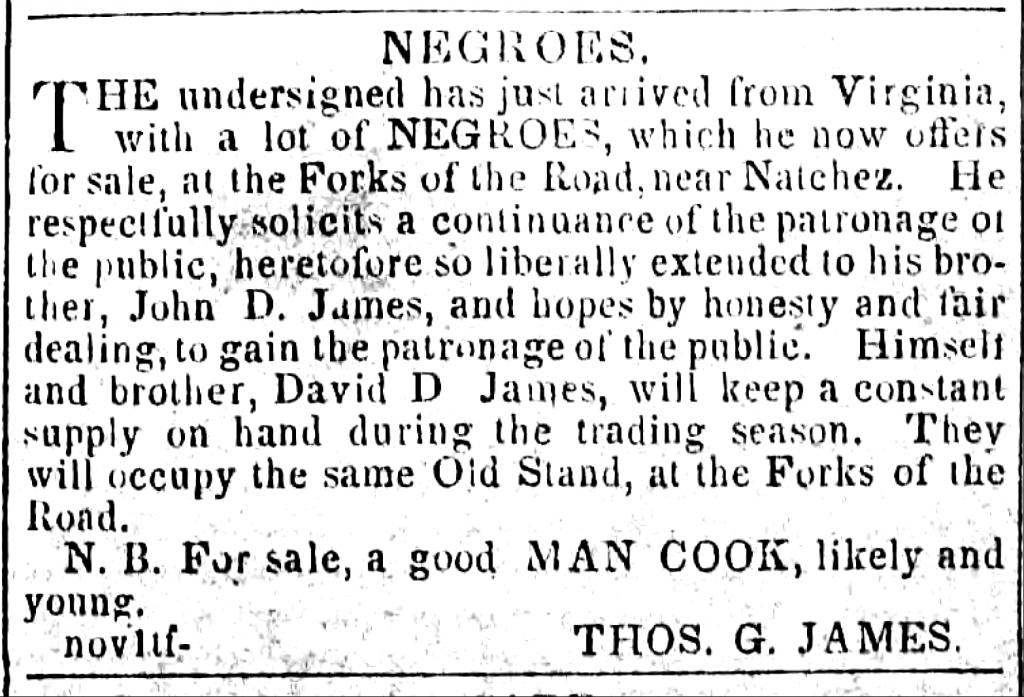
Thomas James ad from the Natchez Gazette, Nov 16, 1850.
About the middle of August last, Adjutant General Thomas, in the course of his mission in the West, arrived at this place and authorized Capt. Smith of the 14th Wisconsin to raise a negro regiment immediately. Two men considered most worthy of promotion were taken from each regiment of the Fourth Division and Ransom’s brigade, and after a rigid examination commissioned as line officers.
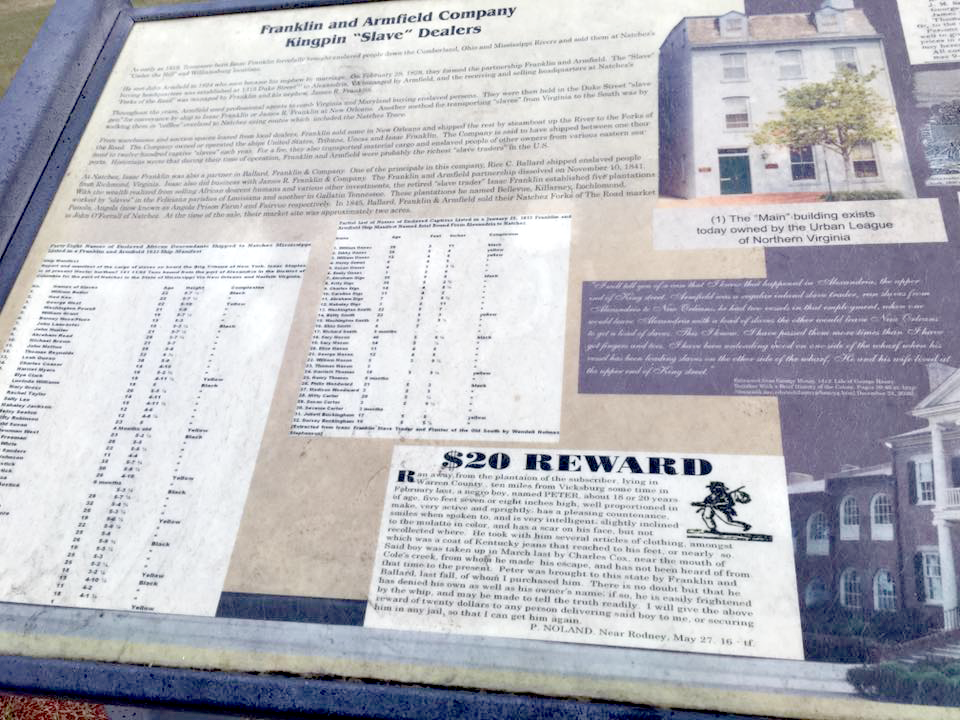
From the Forks of the Road Slave Market exhibit taken during our People’s of the Lower Mississippi Valley Tour.
Thus situated all hands went to work full of energy and determination, and ten days after Gen. Thomas had given authority to raise the regiment we had the organization complete, officers and men mustered into the United States service. While recruiting, our little band of officers made some perilous scouts through the country, our hands were in great demand and sought after with as much zeal in a small way as Gen. Butler’s was on a larger scale by the confederate chiefs. Very liberal rewards were offered for the delivery—dead or otherwise—of any officer belonging to this regiment. So you see we were marked men from the beginning. I have been informed that the rebels have photographs of all the officers of this regiment who have had their photographs taken in this city. Good subjects to grace confederate albums.
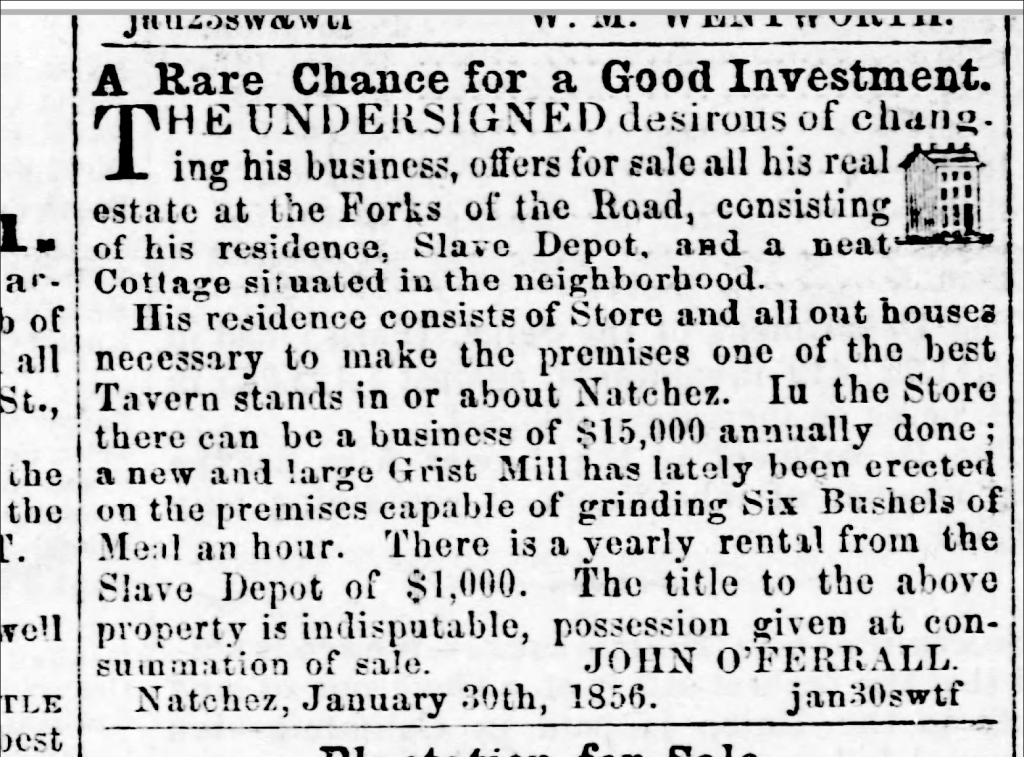
John O’Ferrall ad, dated Jan 30. 1856 from Feb 17, 1857 newspaper.
For a couple of weeks we drilled, making commendable progress considering that these men were fresh from the cotton fields and plantations, many of whom never had a gun in their hands. Ignorant, dirt-begrimed, and forever denied say of the rights or qualities of manhood. The improvement was apparent to the most casual observer. Erect, self-reliant, in the proud consciousness of a newly acquired existence, the dawn of liberty to the race. It was really affecting to see them rush to the ranks, eager to become efficient soldiers, attentive to instructions, obedient to all commends, their whole minds bent on the sole task of qualifying themselves to avenge their wrongs and fight for the government that had given them freedom and protection. But our time for drill and discipline was of short duration.
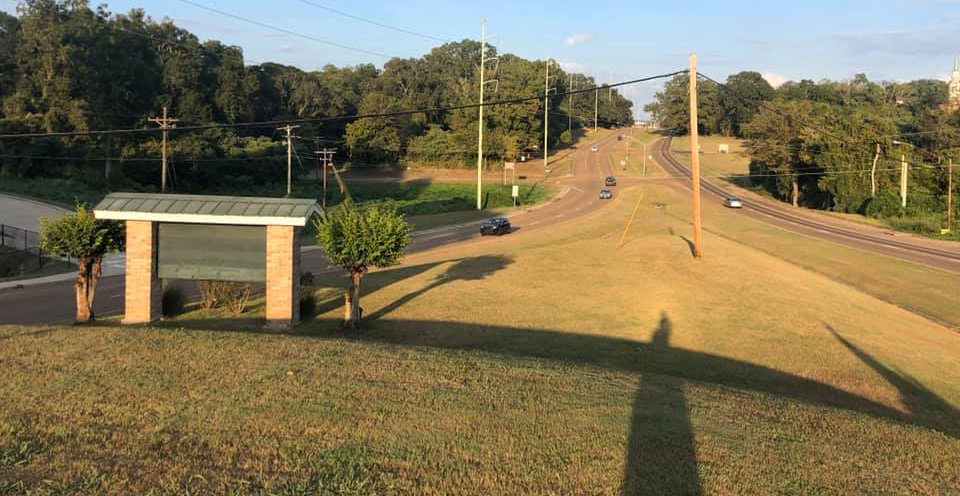
View from the top of Forks of the Road facing north these are the roads on which travelers entered the City of Natchez from the north. They would have passed right by the enslaved market.
Our first quarters were in a long range of barracks used for a number of years as slave pens. Very many of the men composing the regiment had been sold in them; brought from Kentucky, Tennessee, Virginia and other slave States, in large gangs ironed, they were placed in these dungeons until a sale could be affected. These building were situated in [the] outskirts of the city and owned by an Irishman O’Ferrall, the worst of secessionists [sic] in the whole country. As the position was very much exposed, we were ordered to construct barracks within the fortifications and to tear down these slave pens to obtain lumber to build them. This order was received just at evening and was hailed with the wildest enthusiasm by these men who had been chained, gagged and whipped, and suffered tortures unutterable within these same walls, and through that long night they worked with a terrible earnestness and the morning sun saw the slave pens of Natchez leveled to the ground, never, it is hoped, to be again reconstructed. During this work many a thrilling reminiscence was recalled of the cruelty of traders, of sad partings of husband and wife, of inhuman fathers selling their own children, and a thousand other incidents illustrating the detestable stats[sic] of society at the South.
The Medical Inspector of the 17th Army Corps has examined our newly made camp and pronounces it not equaled at this post for cleanliness and the beauty of its grounds.”
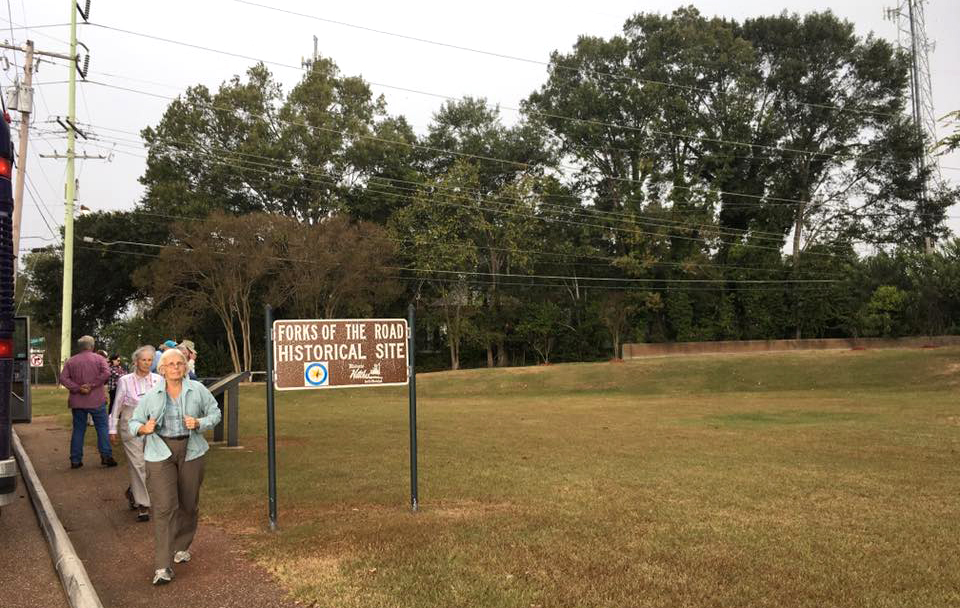
The portion of Forks of the Road Slave Market recently contracted by The Conservancy is along tree line in the background.
There is an effort underway involving The City of Natchez, The National Park Service, The National Park Foundation, The Trust for Public Land, and The Archaeological Conservancy to acquire land for a permanent interpretive memorial at Forks of the Road Slave Market in Natchez, Mississippi. Last year, the Conservancy contracted for a portion of the land that is known as O’Farrell tract. We have since assigned the contract to the National Park Service, which will close on the property soon. This will add another tract to those already donated by the City of Natchez. Additional land must be acquired in order for the National Park Service to begin planning its newest and most moving unit of the Natchez National Historical Park.




